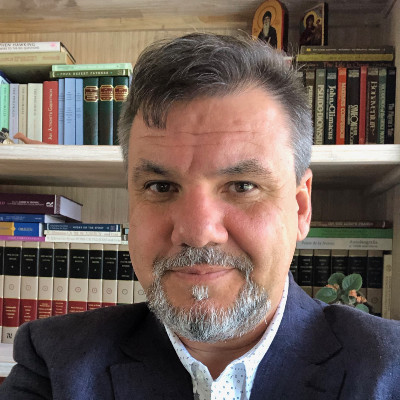Abstract:
Creation’s Natural Mortality and the “Fall”: Patristic Perspectives
Caesarea consistently affirmed creation’s natural mortality. It is from them that I take my cue. The immortality of something that had begun to exist is inconceivable. Immortal by nature is only a being that exists eternally. Accordingly, there is no way of asserting the absence of natural death at any point of creation’s continuum. In turn, Athanasius, Basil, and their traditional confrères believed in the future immortality of creation, at the eschaton, the anticipation of which they considered to be Christ’s resurrected body and the glorified bodies of the saints. This patristic outlook collides with the widespread assumption that the prelapsarian creation was immortal and that it lost this characteristic because of human failures. I am not questioning this patristic outlook; I consider it both theologically normative and scientifically sound; instead, I am interested in understanding how these early Christian theologians construed what we, moderns, call “the fall.” Especially, I am especially interested in seeing what “the fall” amounts to in regard to creation’s natural mortality—and whether this patristic worldview can serve us, Christians, in contemporary conversations with scientifically minded people.
Profile:
Associate Prof. Doru Costache is the ISCAST Research Director. He was trained at the Radu Vodă Seminary, Bucharest, Romania, and has undertaken doctoral studies in Orthodox theology at the University of Bucharest. His doctoral thesis was on the anthropic cosmological principle interpreted from the viewpoint of a patristic theologian, Saint Maximus the Confessor, and a neopatristic theologian, Father Dumitru Stăniloae. He has over twenty years of tertiary teaching experience and was the Durham International Senior Research Fellow at the Institute of Advanced Study, at the University of Durham in 2018. He has published numerous articles and books.

